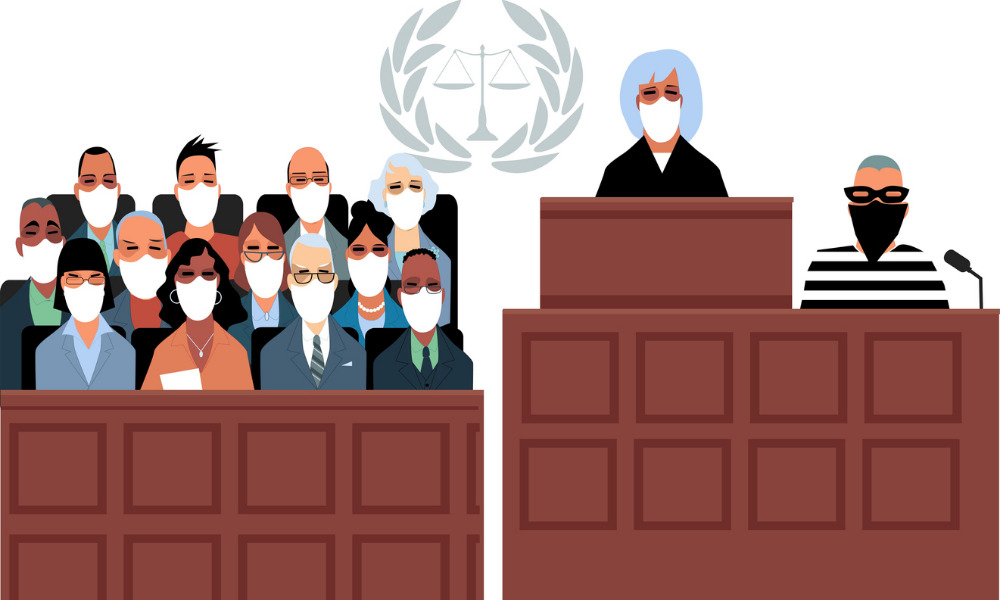
Outbreak causes trial delays because court staff and others should test and isolate, judge says

After a workplace outbreak in San Francisco, the employer should ask the employee concerned when they tested COVID-19-positive or when their symptoms started and should inform the employee’s close contacts that they were exposed, a recent court ruling said.
In the case of Estrada v. The Superior Court of the City and County of San Francisco, the term “close contacts” was defined as including those with whom the individual has been indoors for over 15 minutes, regardless of whether they were wearing masks.
Those who tested positive, with or without symptoms, should stay home and away from others for five days, the case explained. After five days, if they still tested positive, they should continue staying home until they have tested negative or until 10 days have passed since the first positive test, whichever came first.
On June 18, 2021, the San Francisco Superior Court reopened all its courtrooms but maintained numerous emergency rules and orders. In late May to early June 2022, two defendants subject to criminal charges entered pleas of not guilty and requested jury trials.
The superior court said that it had good cause to postpone the trials until a courtroom was available, given the exceptional and extraordinary circumstances that the COVID-19 pandemic caused.
The defendants objected and filed motions to dismiss their cases. They claimed that the superior court violated their right to a speedy trial under section 1382 of the Penal Code. The superior court denied these motions.
The defendants took the case to the California Court of Appeal. They argued that the superior court could no longer rely on the pandemic’s “exceptional circumstances” and thus lacked good cause to postpone their cases past the applicable deadlines in the law.
The defendants acknowledged that a new COVID-19 outbreak occurred at San Francisco’s Hall of Justice in May 2022. But they claimed that the worksite only needed to report the matter to San Francisco’s public health department and to require employees to wear masks and to test regularly for infection. An outbreak had little effect on court administration and required no closures of courtrooms, they said.
The California Court of Appeal for the First District disagreed with the defendants. The appellate court found no errors in the superior court’s decision finding good cause to postpone their trial dates past the deadlines.
An outbreak would naturally lead to significant disruption and trial delays because judges, court staff, litigants, attorneys, witnesses, defendants, law enforcement officers, and jurors had to test and isolate, the appellate court concluded.
Reporting the outbreak to the local health department was not the superior court’s only requirement, the appellate court said. The superior court also needed to contact those with positive tests, to identify their close contacts, and to notify them about possible exposure, the appellate court explained.